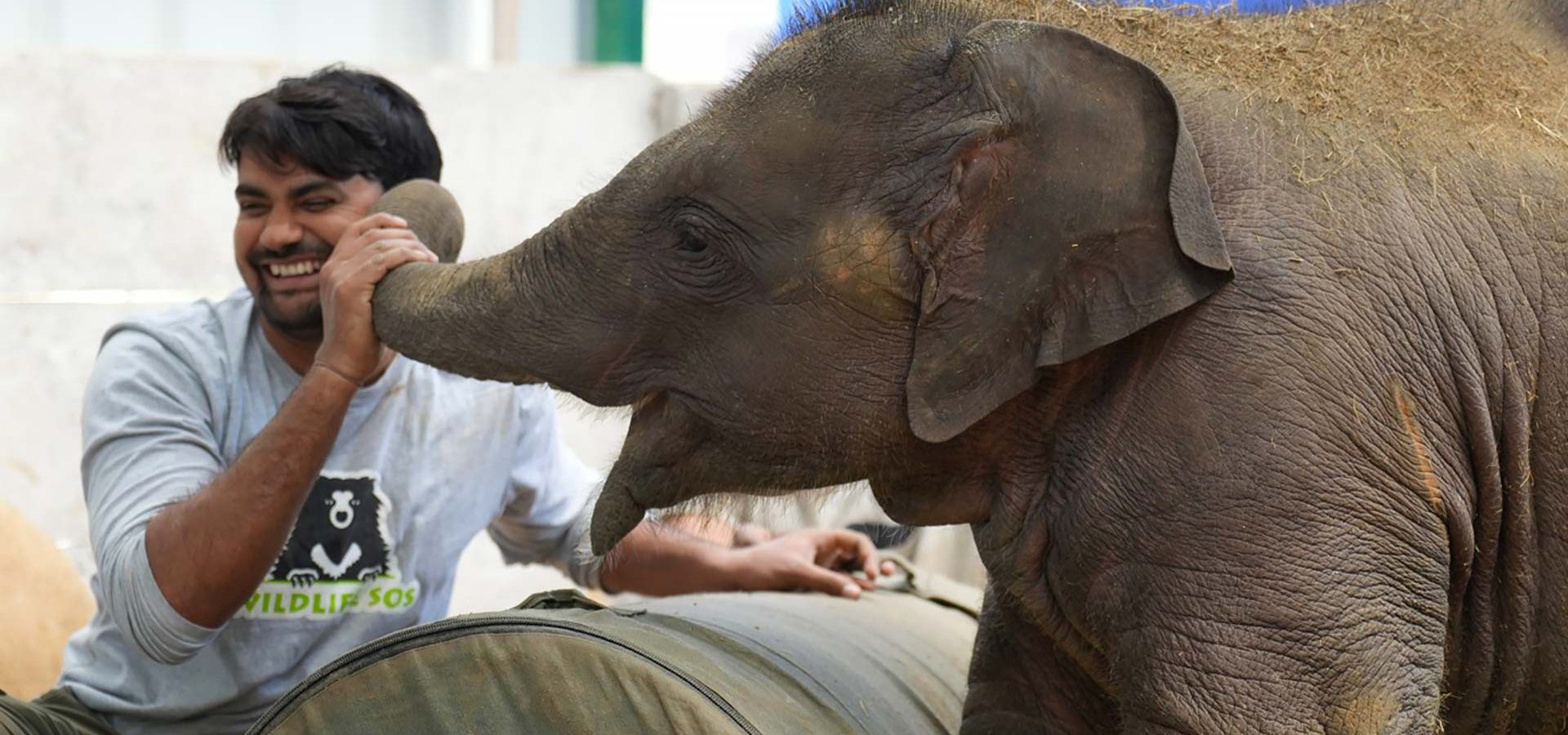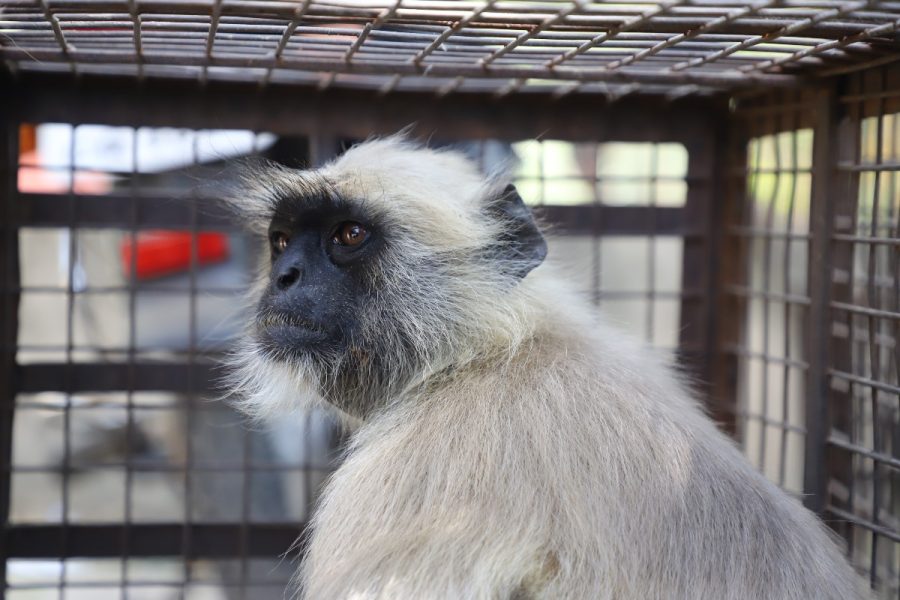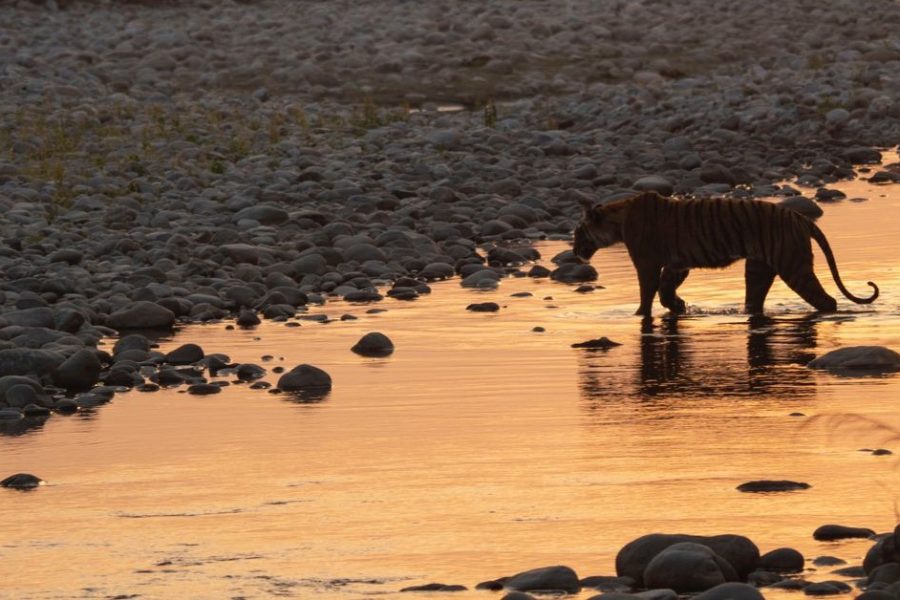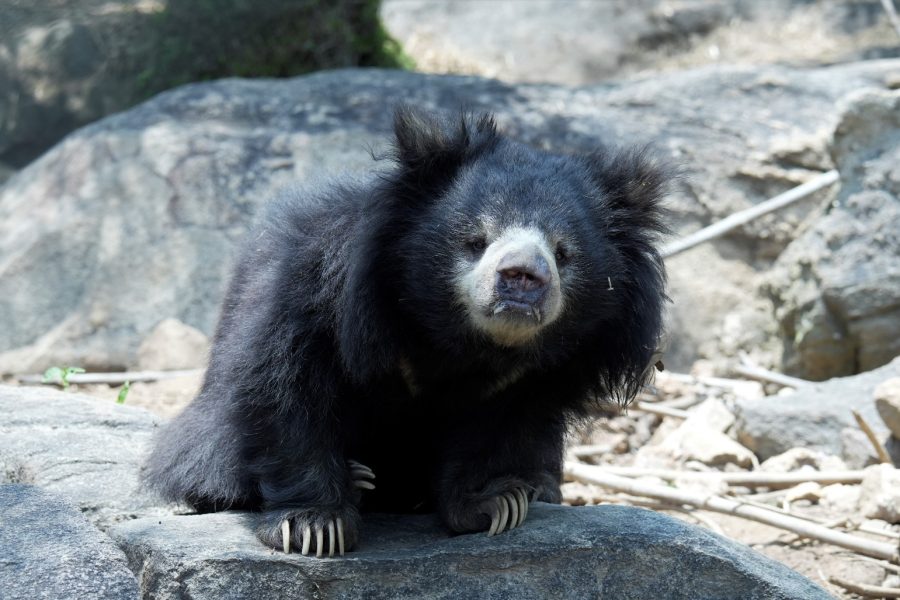A father is one’s biggest role model. His guidance and hard work are inspiring aspects that define him. However, the qualities of a father can sometimes be found in someone you aren’t related to — one who teaches you responsibility and pushes you to be your best. A father figure could be the mentor who patiently imparts knowledge, a teacher who helps you follow your passion, a supportive elder sibling, or the compassionate caregiver to an animal. Fatherly support may come in various forms, but its impact stays forever.
Today, on the occasion of Father’s Day, we at Wildlife SOS would like to acknowledge the guidance and loyalty of caregivers at our elephant, bear and leopard centres. They work tirelessly, often putting their own safety aside, to ensure the well-being of animals that may be injured, orphaned, or have faced brutality in their past. To celebrate their contribution, we highlight the five significant ways caregivers act as fathers to our resident animals.
- Multitaskers: Just like fathers, our caregivers go above and beyond their abilities, taking on multiple responsibilities for the well-being of the animals under their care. Besides nurturing the animals, they also juggle various other tasks such as preparing meals, building enrichments tailored to each animal’s need, cleaning enclosures, and ensuring the overall smooth operation of the centre. Sometimes, a single caregiver has to look after multiple animals. At our bear facilities, for instance, one caregiver tends to the needs of all the bears that reside in an enclosure, and despite the demanding work, he excels in doing this by giving equal care and attention to each.
- Keen Observers: Much like fathers keeping a watchful eye over their children, caregivers maintain detailed records of the rehabilitated animals’ daily activities. They diligently note their behaviour, amount of food consumed, weight, any supplements given and their social interactions. Close observations make caregivers the most reliable conveyors of the animals’ behaviour. They are the first to inform the veterinarians at our centres of any signs of concerns indicating illness, stress, or injury. By catching hold of problems early, caregivers can ensure the animals receive the immediate care they need.
- A Friend in Need: Animals rescued after a lifetime of distress finally find a caring companion in the form of a human at our centres. Neglected and abused in captivity, they receive needed attention and affection by their caregiver. In cases when bear or leopard cubs arrive at our centres, caregivers understand that they carry with them the trauma of losing their natural carers — mothers. By becoming dedicated nurses to these infants, caregivers provide constant emotional support during veterinary check-ups, wound cleanings, and feeding. Their gentle touch and calm presence offer comfort to young animals in their vulnerable age. While they provide immense care during difficult times, caregivers also rejoice every victory the animals make as they heal and grow.
Like a father who acts as a cheerleader for his children during their match, our caregivers enthusiastically cheer for our animals! They tirelessly design enrichments tailored to each bear, leopard or elephant’s needs, andprepare special fruit feasts for animals on their rescue anniversaries. They show as much delight as the animals do while engaging with what the caregivers make!
- Providers of Basic Needs: A father ensures his family’s safety and basic needs. Caregivers too are the primary suppliers of food, water, and shelter to the animals. They carefully consider factors such as age, health condition and favourites when they devise a wholesome dietary plan with the medical team.
Their steadfast commitment to take care of animals deserves a mention. Bear caregivers wake up as early as 4.30 am to prepare a nutritious porridge meal, which they then serve around 6 am. For elephants, the caregivers always carry extra bags of munchies like roasted grams and peanuts to keep the former motivated during their daily walks. They also know how much honey or peanut butter to spread on the enrichments for each bear, and which enrichment is chosen by which pachyderm as their most-loved one! The caregiver makes sure that animals remain cheerfully active both physically and mentally while engaging with enrichments designed for them according to their liking.
- Guardians of Well-being: Many rescued animals have suffered unimaginable cruelty. To help the animals heal effectively, Wildlife SOS has state-of-the-art equipment and medical experts present at our centres. But for each procedure to take place smoothly requires a safe interaction with animals. This is where the caregivers come in. They are the guardians who tenderly guide the animals when they are to be medically examined or treated. They manage to achieve their cooperation through target training sessions that are conducted regularly with the resident animals, and are crucial to enable their healing and care.
Target training involves preparing the animals to willingly respond to certain prompts in order to conduct tests and examinations. For the pachyderms at our centres, caregivers thoroughly check elephants’ feet for foreign debris after their daily walks so that any and every harmful element is removed. Bear caregivers inspect the ursines’ teeth regularly to rule out infections or ulcers resulting from damages they faced in cruel captivity. Through target training, caregivers establish a bond of trust and security with the animals by rewarding them with plenty of treats, kind words and gentle gestures for each response. Receiving these creates a positive association with these procedures for the animals, alleviating their stress and achieving the desired outcomes.
Our caregivers are the voice for the voiceless, and report even the slightest of concerns to our veterinarians. They serve as the backbone for our organisation, and their versatility makes them invaluable protectors of our rescued animals. Despite the arduous nature of their work, caregivers always have a smile of satisfaction on their faces. Many of them have spent their entire adult life working with Wildlife SOS, watching rescued infants grow into healthy adult animals. These caregivers are not just heroes, they are the nurturing fathers of these animals, providing them with unconditional love and care. You too can join our family of wildlife warriors by making a donation towards the welfare of animals under long-term care.





